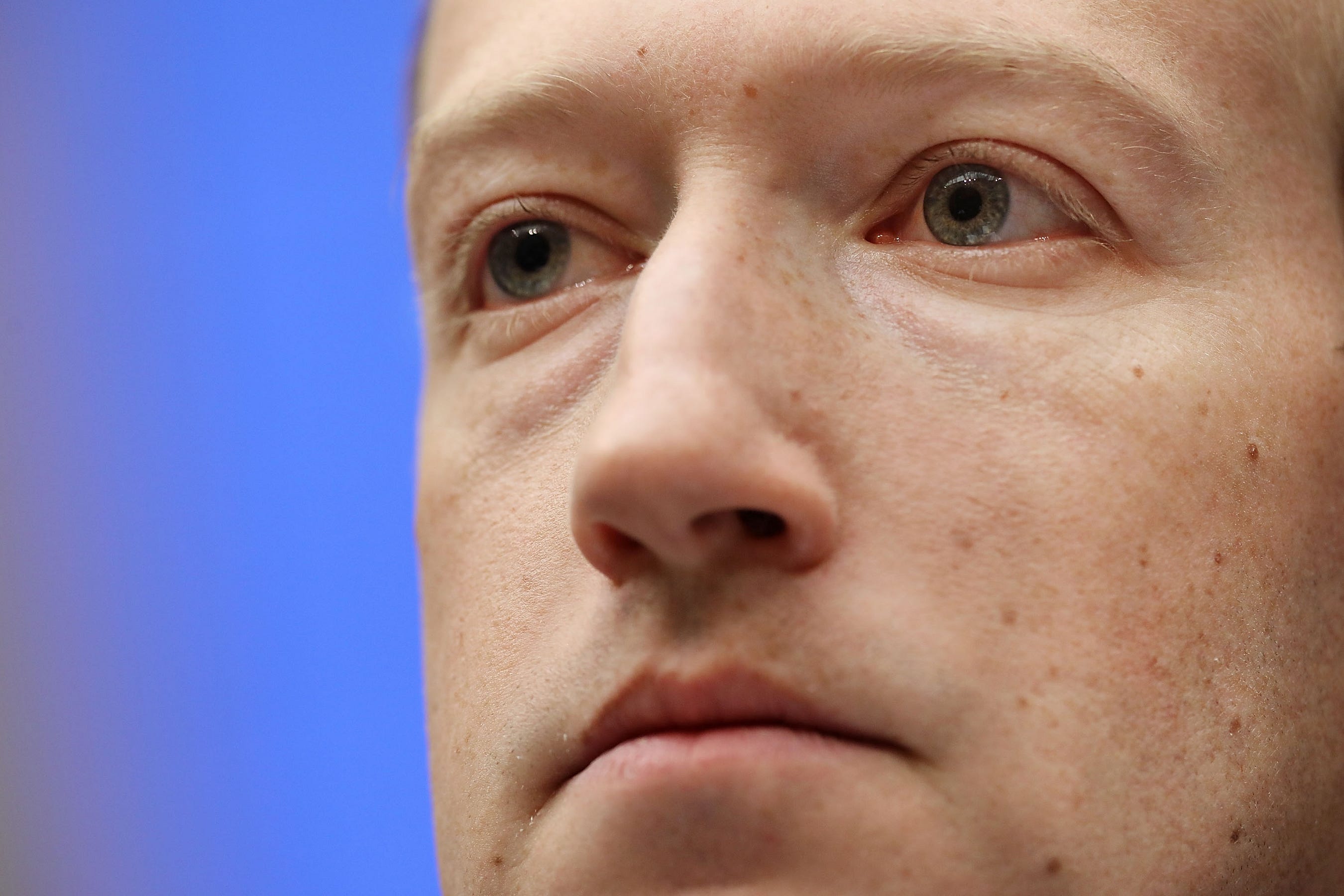By Minda Zetlin
 Facebook has been drowning in embarrassing news this year, and here’s the latest. Years before Cambridge Analytica gained access to millions of Facebook users’ personal data, creating a major scandal for Facebook, Mark Zuckerberg discussed the possibility of such a breach with another Facebook exec. His conclusion: It was nothing to worry about.
Facebook has been drowning in embarrassing news this year, and here’s the latest. Years before Cambridge Analytica gained access to millions of Facebook users’ personal data, creating a major scandal for Facebook, Mark Zuckerberg discussed the possibility of such a breach with another Facebook exec. His conclusion: It was nothing to worry about.
Six years later, when the scandal came out, it was part of the series of negative events that caused the company’s stock to dramatically lose value — and it’s the reason Zuckerberg reluctantly appeared in Washington D.C. earlier this year to answer questions from Congress. As Facebook’s share price dropped, Zuckerberg lost about $34 billion of his net worth from its high point in July.
The British Parliament just released 250 pages of internal Facebook documents related to a lawsuit by app company Six4Three against Facebook. Six4Three briefly published an app called Pikinis which used photo searching technology to find pictures of your Facebook friends in swimsuits. When Facebook shut down third-party apps’ access to users’ friends data in 2015, Six4Three was forced to discontinue its short-lived app. It sued Facebook. In the course of discovery, Six4Three obtained a treasure trove of Facebook internal documents, which a California court placed under seal. But Parliament, which is investigating Facebook in its own right, summoned Six4Three founder Ted Kramer when he was on a business trip to London, and demanded he turn over the documents or be charged with contempt. Parliament’s Digital, Culture, Media, and Sport Committee then published excerpts from the documents on its website — 250 pages of them.
‘Generally Skeptical’
They reveal all sorts of embarrassing things — for instance, that the company deliberately blocked now-defunct video social network Vine from using its API because Vine was a competitor. But perhaps the most embarrassing revelation was this: Years before Cambridge Analytica gained access to some 50 million Facebook users’ data, leading to a major scandal for the social network, Zuckerberg had an email discussion with then-director of product management Sam Lessin about whether to lock down data and what to share with software developers so as to maximize revenues. In that discussion, Zuckerberg dismissed the danger of a Cambridge Analytica-style scandal ever taking place.
In an email to Lessin, he wrote that he was getting “more on board” with locking down some data, “including friends data and potentially email addresses for mobile apps.” Still, he thought Lessin was worrying about nothing. He wrote:
I’m generally skeptical that there is as much data leak strategic risk as you think. I agree there is clear risk on the advertiser side, but I haven’t figured out how that connects to the rest of the platform. I think we leak info to developers, but I just can’t think of any instances where that data has leaked from developer to developer and caused a real issue for us. Do you have examples of this?
Did you catch that? I just can’t think of any instances where this has been a problem. Therefore, it won’t be a problem. Sometimes called the recency bias, there’s a human tendency to think that just because something hasn’t happened in recent memory, it’s unlikely to happen in the future. That bias, in Zuckerberg’s mind, left the door open for the Cambridge Analytica breach.
How many times have you given in to that bias yourself? I know I have. When my husband told me he thought he was having a heart attack, I had every reason to believe him. His father had one and so did his younger brother. Not only that, he told me his left arm was numb, which is a classic heart attack symptom, and not one of, say, indigestion or other conditions which sometimes cause false alarms. But — he had never had heart trouble himself and I didn’t want to think he could. So it wasn’t until the nurse in the hospital confirmed that — yes — it really was a heart attack that I finally believed it.
After the documents were published, Zuckerberg wrote a Facebook post to provide some more context about the excerpts. He notes that Facebook made the privacy changes Lessin was pushing for in 2014 and 2015 — two years after this email conversation took place. He goes on:
In fact, this was the change required to prevent the situation with Cambridge Analytica. While we made this change several years ago, if we had only done it a year sooner we could have prevented that situation completely.
In other words, Zuckerberg’s recency bias caused him to delay taking action — and that delay led to mountains of embarrassment for Facebook. It partly resulted in a $34 billion drop in his net worth.
What will recency bias cost you?
No comments:
Post a Comment